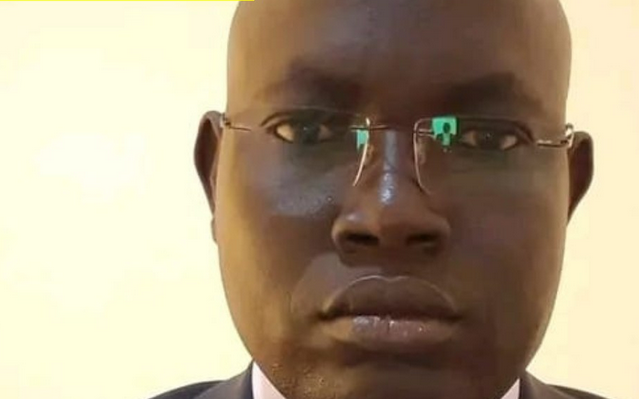Photo: Facebook
Responding to yesterday’s petition by the Pan-African Lawyers Union (PALU) to the East African Court of Justice (EACJ) to try and establish the fate and whereabouts of Morris Mabior Awikjok Bak, a critic of the South Sudanese government who was reportedly arbitrarily arrested or unlawfully abducted in Kenya, forcefully returned and allegedly detained in South Sudan this month, Amnesty International’s Deputy Regional Director for East and Southern Africa Flavia Mwangovya said:
“We applaud PALU’s efforts seeking, through the EACJ, to clarify the fate and whereabouts of Morris Mabior Awikjok Bak, a South Sudanese man who attempted to seek refuge in Kenya in 2021. We call on the South Sudanese authorities to, without further delay, clarify the fate and whereabouts of Morris Mabior Awikjok Bak.”
“What happened to Morris Mabior Awikjok Bak matches a broader pattern of abductions and illegal transfers of South Sudanese refugees from neighbouring countries by South Sudan’s National Security Service (NSS). This case brings back haunting memories of the enforced disappearance in Kenya and alleged extrajudicial killings in South Sudan of South Sudanese human rights lawyer and activist Dong Samuel Luak, and Aggrey Ezbon Idri, a member of the political opposition.”
“In addition to clarifying the fate and whereabouts of Morris Mabior Awikjok Bak, the South Sudanese authorities must ensure he has regular access to his family, a lawyer and a doctor, and unless he is charged with an internationally recognisable offence, immediately release him.”
Background:
On 4 February, Morris Mabior Awikjok Bak, a critic of the South Sudanese government and the Director General of the NSS’s Internal Security Bureau, was reportedly arbitrarily arrested or unlawfully abducted, allegedly
by armed Kenyan security forces, and a South Sudanese man and Kenyan woman in civilian clothes, in Nairobi, Kenya, where he resides. It is believed he was forcefully returned to Juba, the capital of South Sudan, and is being held in incommunicado detention at a National Security Service detention facility.
The NSS operates a spy network that extends throughout East Africa where many South Sudanese have found refuge. Since January 2017, at least four South Sudanese men, three of whom were refugees and under Kenya’s protection, were illegally picked up and transferred back to South Sudan where they were held in prolonged detention in the NSS’s detention facility known as the Blue House. Two of them were allegedly extra-judicially killed.
On 3 July 2019, Hope for Humanity Africa and PALU sued the Government of South Sudan and the Republic of Kenya at the EACJ concerning the abduction, enforced disappearance, illegal and/or extraordinary rendition, arbitrary detention, torture, and possible subsequent murder of Dong Samuel Luak and Aggrey Ezbon Idri. The case is still before the EACJ.
Since the NSS Act in 2014, the NSS has accumulated unchecked powers, becoming one of the main perpetrators of human rights violations and the most powerful security actor in South Sudan. Exceeding the NSS’s constitutional mandate, which limit its powers to “information gathering, analysis and advice to the relevant authorities,” the 2014 NSS Act gives the security agency police-like powers to arrest, detain, conduct searches and seize property without adequate safeguards. On 21 February, several South Sudanese media reported that President Salva Kiir Mayardit and First Vice President Riek Machar agreed to remove sections 54 and 55 in the act that give the NSS unconstitutional powers to arrest without and with a warrant, therewith agreeing to curb the NSS’s powers which, if enacted, would be a step towards bringing the 2014 NSS Act in line with the constitution.
Amnesty International, the UN Panel of Experts, UN Commission on Human Rights and other human rights organizations have documented numerous arbitrary detentions by the National Security Service (NSS) in multiple facilities where detainees are often subjected to torture and other ill-treatment – some held incommunicado without access to a lawyer, or family members.







